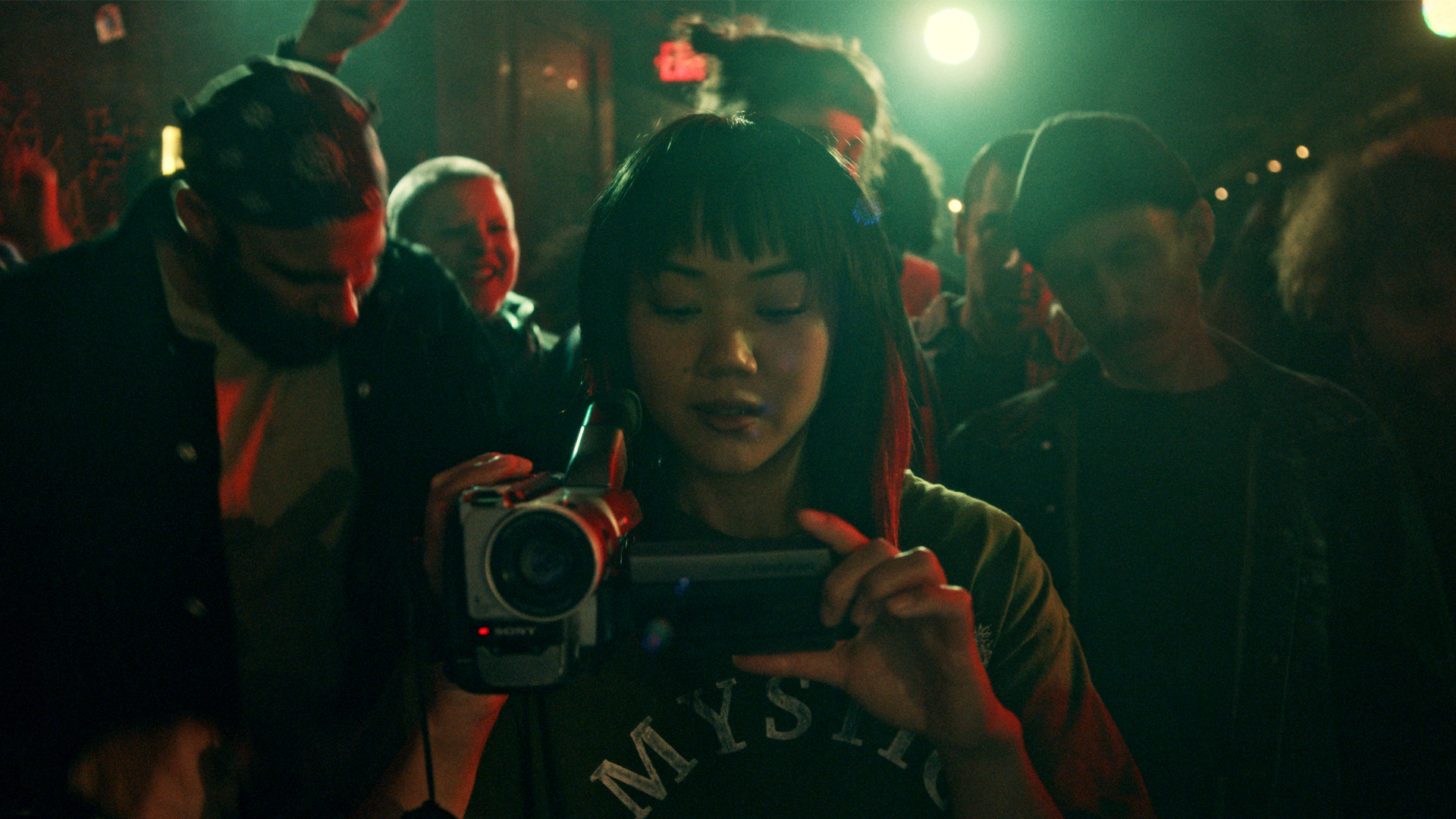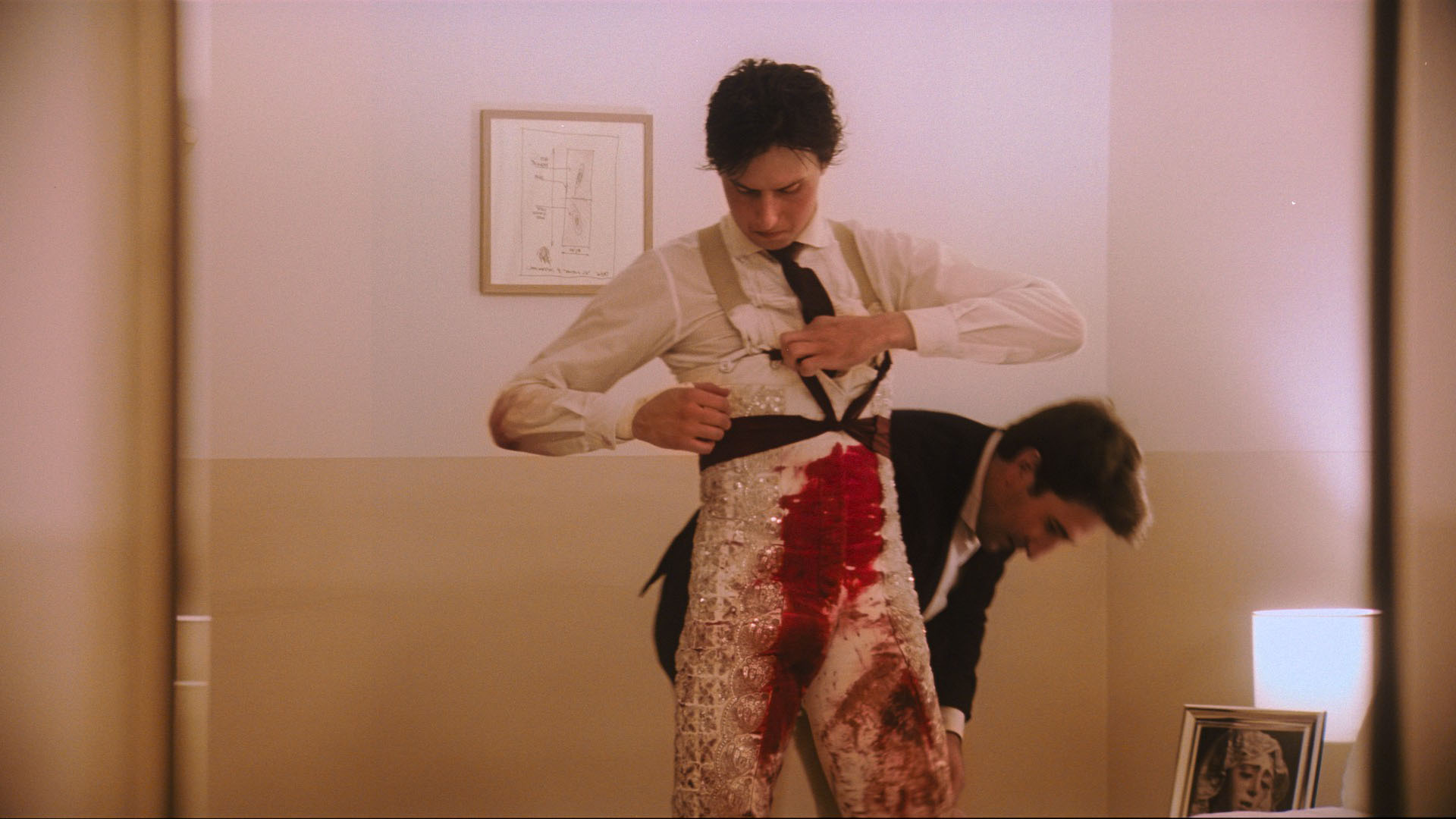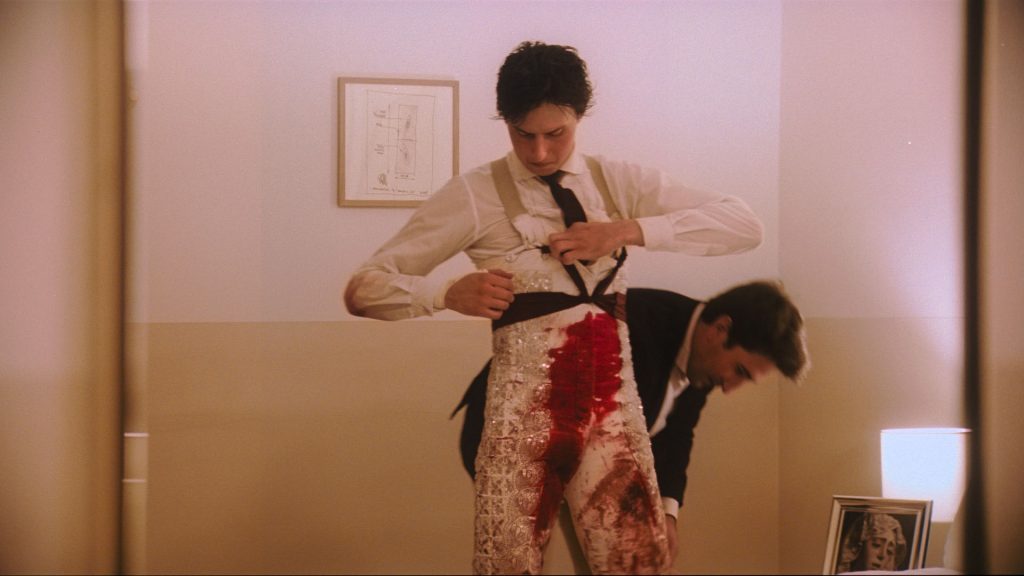The 62nd FICX will feature 16 exceptional titles in its Enfants Terribles section, especially dedicated to children and young people, including the world premiere of one of the most renowned sagas of contemporary animated cinema, Ernest & Célestine, Springtime Tales, by Aurélie Raphaël. Similarly, this section will host a total of 12 Spanish premieres, including films such as Akiko: The Flying Monkey, by Veit Helmer, and Jippie No More! by Margien Rogaar. This year’s Enfants Terribles selection includes up to 7 first works as well as several feature films that have already had an outstanding run at prestigious international festivals such as Cannes, Locarno and Annecy.
As every year, schools will also have at their disposal a didactic guide that invites them to reflect on the films, including activities to be carried out both before and after the screening of the films at the Festival. This guide, written by the writer and film critic Jesús Palacios, contains recommendations, activities and questions for students, and will also be available in digital format on the FICX website. In addition, the Festival will be organising meetings with filmmakers after the screenings and two workshops to explore acting and stop-motion animation in greater depth.
The Enfants Terribles programme has become an essential activity for a large part of the Asturian educational community, as demonstrated by the more than 250,000 students and teachers who have attended the screenings and activities of the section since its beginnings. In 2023, the audience figures for Enfants Terribles in the 60th edition were surpassed by 12%. Another sign of the Festival’s potential among young audiences is that the 16 youth ticket vouchers sold in 2019 have grown to 212 in 2023.
Enfants Terribles: a necessarily humanist view of the world
Two of the Enfants Terribles films that will premiere in Spain during the Festival will also form part of the Albar Official Selection. They are When the Light Breaks, by Rúnar Rúnarsson, and L’Histoire de Souleymane (The Story of Souleymane), by Boris Lojkine; both had their world premiere in the Un Certain Regard Section at the Cannes Festival.
Rúnar Rúnarsson’s latest film, When the Light Breaks (Iceland, Netherlands, Croatia, France), is restrained in drama and exceptionally sensitive. It confronts a group of young people with the unexpected grief over the death of a friend who was also the boyfriend of two of them.

When the Light Breaks by Rúnar Rúnarsson
L’Histoire de Souleymane (The Story of Souleymane) (France), by French director Boris Lojkine, follows a young Guinean man working illegally as a delivery boy in Paris as he prepares for an interview to apply for political asylum. With echoes of the films of the acclaimed Dardenne brothers, the film, as harsh as it is truthful, is notable for its fast-paced script and the impeccable performance of its leading man, which won him the Best Actor Award at Cannes, where the film also won the Un Certain Regard Jury Prize.

L’Histoire de Souleymane (The Story of Souleymane) by Boris Lojkine
Veit Helmer, author of films such as Gondola, Tuvalu and The Bra, starring Paz Vega and Denis Lavant, will premiere Akiko: The Flying Monkey (Germany) in Spain during FICX. An animal fable that was screened at the Locarno Festival, it follows the journey of a monkey who manages to escape from the zoo to find his family with the help of other animals.

Akiko: The Flying Monkey by Veit Helmer
With large doses of humour and an aesthetic reminiscent at times of Wes Anderson, the latest feature film by Dutch director Margien Rogaar, Jippie No More! (Netherlands), whose state premiere will also take place at FICX, follows a young boy with Down’s syndrome who meets his family at his grandfather’s house to prepare for his sister’s wedding. The feature film won the Young Jury Award and the Audience Award for Best National Children’s Film at the Cinekid Festival.

Jippie No More! by Margien Rogaar
One of the most renowned sagas of new European animation, the adaptation of the children’s books by Belgian writer and illustrator Gabrielle Vincent, Ernest & Célestine, is making its world premiere at FICX. On this occasion, it is Aurélie Raphaël who is directing the sequel, thus signing her first feature film. With Ernest & Célestine, tales of spring (France), the most endearing bear and mouse in animation once again dazzle us with their beautiful friendship. In its desire to build bridges of collaboration with other festivals instead of encouraging competition, FICX shares this premiere with My First Festival, aimed at children aged 2 to 12 and held in Barcelona.

Ernest & Célestine, cuentos de primavera by Aurélie Raphaël
As part of this collaboration with My First Festival, FICX also presents the second feature film by filmmaker Kristina Dufková, Living Large (Czech Republic), a successful stop-motion animation that won the Special Jury Prize at the Annecy Festival and was also selected for the Karlovy Vary Festival. With this film about a charismatic teenager suffering from obesity, the director subtly approaches sensitive issues such as mental health, parental separation and bullying.

Living Large by Kristina Dufková
For their part, the filmmaking couple Tania Vincent & Ricard Cussó co-directed The Sloth Lane (Australia). In this inventive Australian 3D animated film, which also premiered at the Annecy Festival, a family of sloth bears who have been running a restaurant for several generations lose everything in a tornado and are forced to emigrate to the neighbouring country to try to start a new life. Big issues such as migration, work and family ties underlie this adventure of eccentric characters that is not without fun.

The Sloth Lane by Tania Vincent & Ricard Cussó
As usual, FICX’s programme includes several debut films. This is the case of Last Swim (United Kingdom), with which the English director of Indian-Iranian descent Sasha Nathwani won the Crystal Bear for Best Film in the Generation 14plus Section at the Berlinale. It is a film about acceptance and coming-of-age, in which a young woman shares a sunny London summer day with her friends while keeping an anguished secret.

Last Swim by Sasha Nathwani
Lea Becker, director of series such as Kitz, also makes her feature film debut with Skategirls – Get Up (Germany), a luminous film about four friends who train during the summer to compete in a women’s skateboarding competition. In it, the union between women and LGTBI representation take on great relevance.

Skategirls – Get Up by Lea Becker
The Mountain (New Zealand) is the debut of Rachel House, a Maori theatre director and actress who is a regular in the films of director Taika Waititi, who this time signs on as executive producer. With humour and sensitivity, the film follows a girl with cancer who escapes from hospital on a mission to climb Taranaki Mountain. The Mountain will be screened at FICX after its premiere at the Toronto International Film Festival.

The Mountain by Rachel House
L’edat imminent (Spain), by Col-lectiu Vigília, is the first film by this group of filmmakers from the Audiovisual Communication Degree at Pompeu Fabra University. After receiving several awards in its development phase as a project, including the WIP Spain Award at the Malaga Festival, L’edat imminent had its world premiere at the Giffoni Film Festival (Italy), with which FICX has been collaborating since 2003 by promoting the exchange of young people to form part of the Youth Jury at both events. The feature film, directed by Clara Serrano & Gerard Simó, explores the relationship between a young man and his grandmother, by whom he was raised and whom he now has to take care of; and it does so from a place close to him that the filmmakers reveal with the naturalness of what has been lived, of what is their own. The film will also form part of the FICX Premiere section, which will premiere some of the most outstanding films of the year in the field of international auteur cinema.

L’edat imminent by Col·lectiu Vigília (Clara Serrano & Gerard Simó)
Winner of the Audience Award at the Venice International Critics’ Week, French-British director Jethro Massey‘s debut feature, Paul & Paulette Take a Bath (UK) comes to Enfants Terribles to offer the Festival’s teenage audience a black and uncomplimentary comedy set in Paris, part romantic, part historical, where a naïve American and a French woman with a changeable mood strike up a strange relationship.

Paul & Paulette Take a Bath by Jethro Massey
The 62nd FICX will also feature the state premiere of Bis Repetita (Latin For All) (France), another debut and an amusing comedy in which its director, Émilie Noblet, accompanies an unmotivated Latin teacher who travels with her students to Italy to represent her school in an international competition, which they will try to win with more than questionable methods.

Bis Repetita (Latin For All) by Émilie Noblet
For its part, Ce n’est qu’un au revoir (So Long) (France), the already announced feature film by the renowned director Guillaume Brac, which will also premiere in Spain at FICX Premiere, will also be present at Enfants Terribles after its screening at Cannes. On this occasion, the French filmmaker offers us a delicate portrait of a group of young people living in a boarding school and facing an uncertain future where everything they have known up to now, including their friendship, is tinged with the melancholy of a farewell.

Ce n’est qu’un au revoir by Guillaume Brac
After the great recognition obtained with The Life of Zucchini, Swiss director Claude Barras presents Savages (Switzerland, France, Belgium), a hopeful ecological fable in stop-motion animation that reveals the terrible consequences of deforestation. A young girl living next to the rainforest in Borneo takes in a baby orangutan after the company that is devastating the jungle has orphaned the animal. The film, which will have its Spanish premiere at the Sitges Festival, comes to the Enfants Terribles and Esbilla sections at FICX, after premiering as a special screening at Cannes and competing in the Official Section of the Annecy Animation Film Festival.

Salvajes by Claude Barras
Enfants Terribles is also hosting, out of competition, the premiere of Patricia de Luna‘s third short film. Las piedras de la Luna (Spain) deals with the problem of reconciling family and work by focusing on the relationship between a six-year-old girl and her mother, a flight attendant who brings back from each of her trips a stone that will also make her daughter travel through her imagination.

Las piedras de la Luna by Patricia de Luna
The 62nd FICX looks into the eyes of independent cinema
This year’s slogan, ‘face to face with independent cinema’, refers to the unique opportunity offered by FICX to promote the meeting between the public and the filmmakers who are making their mark on the international film scene, and highlights the accessible dimension and the close nature of the event and the city of Gijón, the humanism inherent in its film proposals and the complicity of a diverse and dedicated audience that will once again fill the cinemas from 15 to 23 November.
The general image of the 62nd edition of FICX is centred on the faces of a series of heterogeneous characters in which the public and filmmakers acquire equal prominence. The graphic designer and illustrator Marco Recuero, in charge of its creation, says he was inspired by ‘the children’s books designed by El Lissitzky, based on basic shapes and a minimal colour palette’. As for the colours that make up the design, Recuero indicates that he opted for pink ‘in combination with the FICX corporate colour, because it transmits calm, optimism and relaxation’.

Image of the 62FICX
In the case of the Enfants Terribles image, the characters in the illustration representing the new generations of spectators enter the cinematographic gaze by enthusiastically walking towards the iconic eye of the FICX.

Image of Enfants Terribles
Celia Viada Caso invites us to reflect on the gaze in the film piece that will introduce this year’s Festival screenings.
For the past four editions, the Festival has included a short film piece made by Asturian filmmakers as an introduction to its screenings. Previous filmmakers such as Ramón Lluís Bande, Elisa Cepedal and Diego Llorente have taken part in this initiative. In 2024 it is the turn of Celia Viada Caso, who is this year’s headliner of the 62nd FICX. The director, who in 2020 won no less than seven awards at the Festival with her debut film La calle del agua and who won the Special Mention of the Official Jury with her short film Gregoria at the last edition of FICX; offers with this piece a resounding and accurate analysis of the cinematographic exercise using only a mirror and two seats (those of the Teatro Jovellanos), which she herself, with the help of the also filmmaker Dani Álvarez, literally places in different spaces of the Asturian environment. In her own words: ‘The piece arose from thinking about an object in disuse, some old theatre seats. The mirror that appears at the beginning and end of the piece allows us to reflect on the gaze, on what we see and what is hidden, the reflection and what is behind it’.


























